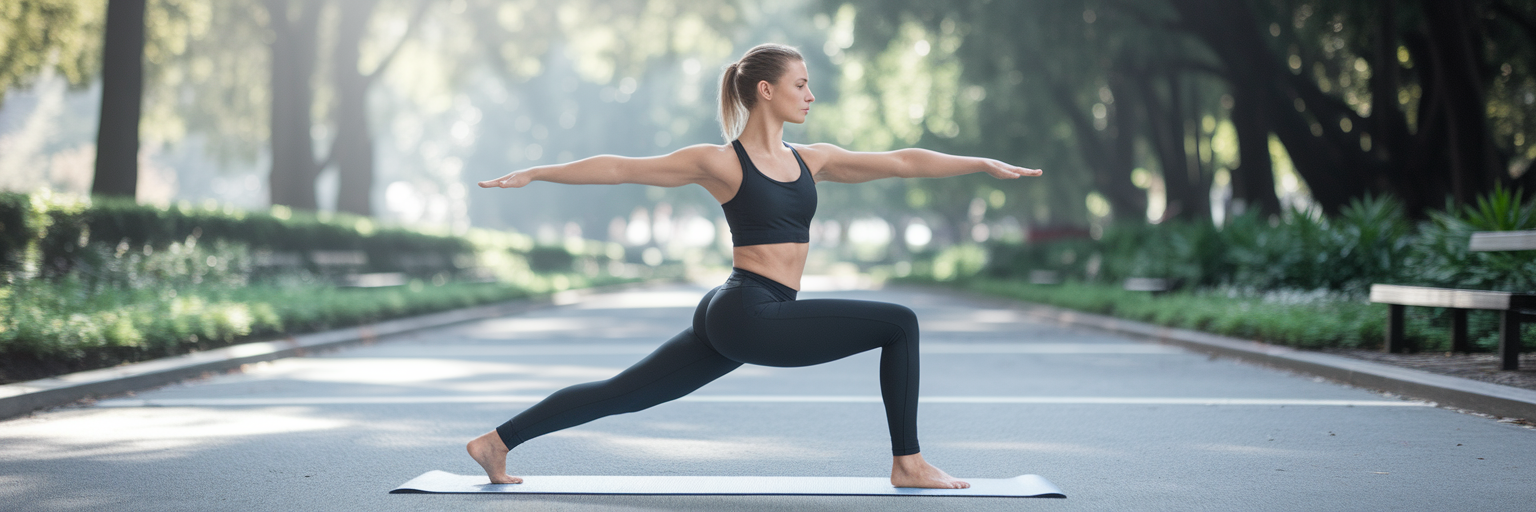The Foundation of Vegan Fitness and Bone Strength
If you're active and follow a vegan lifestyle, you've probably had that quiet thought: "Am I doing enough to protect my bones?" It's a common question, but it doesn't have to be a source of anxiety. Instead, let's reframe it as a point of empowerment. Building strong bones is a team effort, and it relies on much more than just calcium.
Think of protein as the essential framework for your bones, the scaffolding that minerals like calcium build upon. For years, myths have circulated that a plant-based diet is insufficient for bone health, but that idea is outdated. With a thoughtful approach to your plant based diet bone density can be well supported for the long haul.
For those of us with active schedules, meeting our heightened protein needs can sometimes feel like a challenge. This is where high-quality vegan protein powders come in. They offer a convenient and effective way to ensure you're getting the foundational support your body needs. This guide will give you a straightforward, actionable plan to support your long-term bone health and fitness on a vegan diet.
Why Protein is a Pillar for Your Bones
So, why exactly is protein so important? It goes beyond just feeding your muscles. Protein forms the collagen matrix within your bones, a flexible web that gives them resilience and the ability to withstand impact. To put it simply, protein is like the rebar in concrete. It provides the essential structure that minerals bind to, creating a strong and durable skeleton. In fact, about 50% of your bone volume is made of protein.
A common misconception is that plant protein is somehow inferior to animal protein. This simply isn't true. As research published in a National Library of Medicine (PMC) journal confirms, a well-planned diet with varied plant proteins provides all the essential amino acids your body needs for complete nutrition. You can absolutely get everything you need from plants.
This is where a focus on vegan protein for bone health becomes so practical. High-quality vegan protein powders, especially those that blend different plant sources, offer a concentrated and complete amino acid profile. This makes it much easier for active individuals to support both muscle repair after a workout and the ongoing synthesis of new bone tissue. If you're curious about what makes a great powder, you can explore some of the best protein powders we've reviewed to see what fits your goals.
Finding Your Ideal Plant-Based Protein Boost

Choosing a protein powder can feel overwhelming with so many options on the shelf. Let's break it down into a simple, friendly guide. The most common types of vegan protein powders in the US each have unique benefits:
- Pea Protein: Rich in iron and branched-chain amino acids (BCAAs), which are great for muscle support.
- Soy Protein: A complete protein, meaning it contains all nine essential amino acids. It has a smooth texture.
- Hemp Protein: Offers a good dose of fiber and healthy fats, including omega-3s.
- Brown Rice Protein: A solid hypoallergenic option that's easy to digest.
You'll often see protein blends on the market, and for good reason. Combining sources like pea and rice creates a more robust and complete amino acid profile, giving you the best of multiple worlds. When you're looking for the best vegan protein powder US brands have to offer, here are a few things to keep in mind:
- Look for third-party testing: This ensures the product is clean and what's on the label is actually in the tub.
- Check for minimal added sugars: Your protein powder should be a source of nutrition, not a dessert.
- Read the ingredient list: Opt for clean, recognizable ingredients without a long list of fillers or artificial additives.
Exploring clean, plant-based options can make a real difference in your routine. A high-quality supplement like our chocolate vegan protein can be a delicious and effective way to enhance your fitness. Feel free to browse our collections of clean supplements to find what works for you.
The Bone-Building Nutrient Team
While protein is the captain of the bone-health team, it can't win the game alone. It needs a strong lineup of supporting players to get the job done right. Let's meet the key nutrients that work alongside protein to keep your bones dense and resilient.
Calcium: The Hardness Mineral
Calcium is the mineral that gives your bones their hardness and density. It's the "concrete" that fills in the protein "rebar." Thankfully, there are plenty of excellent calcium sources for vegans. Fortified plant milks, calcium-set tofu, kale, broccoli, and almonds are all fantastic options to incorporate into your daily meals. You can find creative ways to include them in our easy vegan protein recipes.
Vitamin D: The Gatekeeper
You can eat all the calcium in the world, but it won't do much good without Vitamin D. This vitamin acts as a gatekeeper, allowing your body to absorb calcium from your diet and deposit it into your bones. While some foods are fortified with it, our primary source is sunshine. Because sun exposure can be limited, especially in many parts of the US during fall and winter, supplementation is often a practical choice.
Vitamin K and Magnesium: The Supporting Players
Think of Vitamin K as the traffic cop for calcium. It helps direct calcium to your bones and keeps it from building up in your arteries. You can find it abundantly in leafy greens like spinach, kale, and collard greens. Magnesium is another crucial mineral that is a key component of the bone structure itself. It's readily available in nuts, seeds, whole grains, and legumes.
| Nutrient | Role in Bone Health | Top Vegan Sources | Daily Tip |
|---|---|---|---|
| Calcium | Provides bone hardness and density. | Fortified plant milks, calcium-set tofu, kale, broccoli, almonds. | Aim for at least two rich sources daily. |
| Vitamin D | Essential for absorbing calcium from your diet. | Fortified foods, mushrooms exposed to UV light, sunshine. | Consider a supplement, especially in fall and winter. |
| Vitamin K | Helps direct calcium to the bones and away from arteries. | Leafy greens like spinach, kale, and collard greens. | A daily green salad or smoothie is a great habit. |
| Magnesium | A key mineral component of the bone structure itself. | Nuts (almonds, cashews), seeds (pumpkin, chia), whole grains, legumes. | Incorporate a handful of nuts or seeds as a snack. |
Note: This table provides a snapshot of key nutrients and their common sources. Individual needs may vary, and these foods should be part of a balanced, whole-foods diet.
Beyond the Plate: Active Habits for Bone Density

What you eat is only half the story. Your bones are living tissues that respond and adapt to the demands you place on them. This process, known as mechanical loading, is a powerful signal for your body to build and maintain bone density. The right kind of movement is just as important as the right kind of fuel.
The Power of Weight-Bearing Workouts
Weight-bearing exercises are any activities where you support your own body weight. The impact of your feet hitting the ground sends a signal up through your skeleton, telling your bones to get stronger. This doesn't have to mean high-intensity training. Fun, accessible examples include:
- Jogging or running
- Dancing
- Brisk walking or hiking
- Playing tennis or basketball
The Importance of Muscle-Strengthening
Resistance training is another critical piece of the puzzle. When your muscles contract to lift a weight or pull against a band, they tug on the bones they're attached to. This tension is one of the most effective bone strengthening exercises for vegans and everyone else. Activities like lifting weights, using resistance bands, or even practicing dynamic forms of yoga all contribute to this effect. As you build stronger muscles, you also build stronger bones. This is why supporting muscle growth is so important, and you can learn more about how certain supplements can help in our guide to creatine benefits.
For comprehensive bone support, aim for a routine that includes a mix of both weight-bearing and muscle-strengthening activities throughout your week.
Your Daily Blueprint for Bone Health
Putting it all together doesn't have to be complicated. Instead of following a rigid plan, think of it as a flexible daily blueprint. A great goal is to aim for 3-4 servings of high-protein foods like beans, lentils, tofu, or tempeh, and at least two servings of calcium-rich foods each day.
What does that look like in practice? You could power up your morning with a smoothie made with fortified oat milk, a scoop of vegan protein, and a handful of spinach. For lunch, a big quinoa salad with chickpeas and sunflower seeds would be perfect. Then, a tofu and broccoli stir-fry for dinner would round out a fantastic day of bone-supportive eating.
This approach ensures you're consistently providing your body with the building blocks it needs. Of course, everyone's needs are different. If you have specific health goals or concerns, consulting with a registered dietitian is always a valuable step to create a plan that's perfectly tailored to you.
A Strong Future on a Plant-Based Path
Feeling confident about your bone health on a vegan diet is entirely achievable. It comes down to a few key principles: ensuring you get adequate protein, pairing it with its essential nutrient teammates like calcium and vitamins D and K, and staying active with targeted exercise.
A well-planned, whole-foods diet is your foundation. Vegan protein powders are simply a helpful and convenient tool to make sure you're hitting your targets, especially when you lead an active life. You have all the resources you need to build a strong, resilient body for years to come.
Feel confident in your plant-based journey. If you found this guide helpful, share it with your fellow active vegans to spread the knowledge. To continue learning, feel free to explore more insights on our blog.



